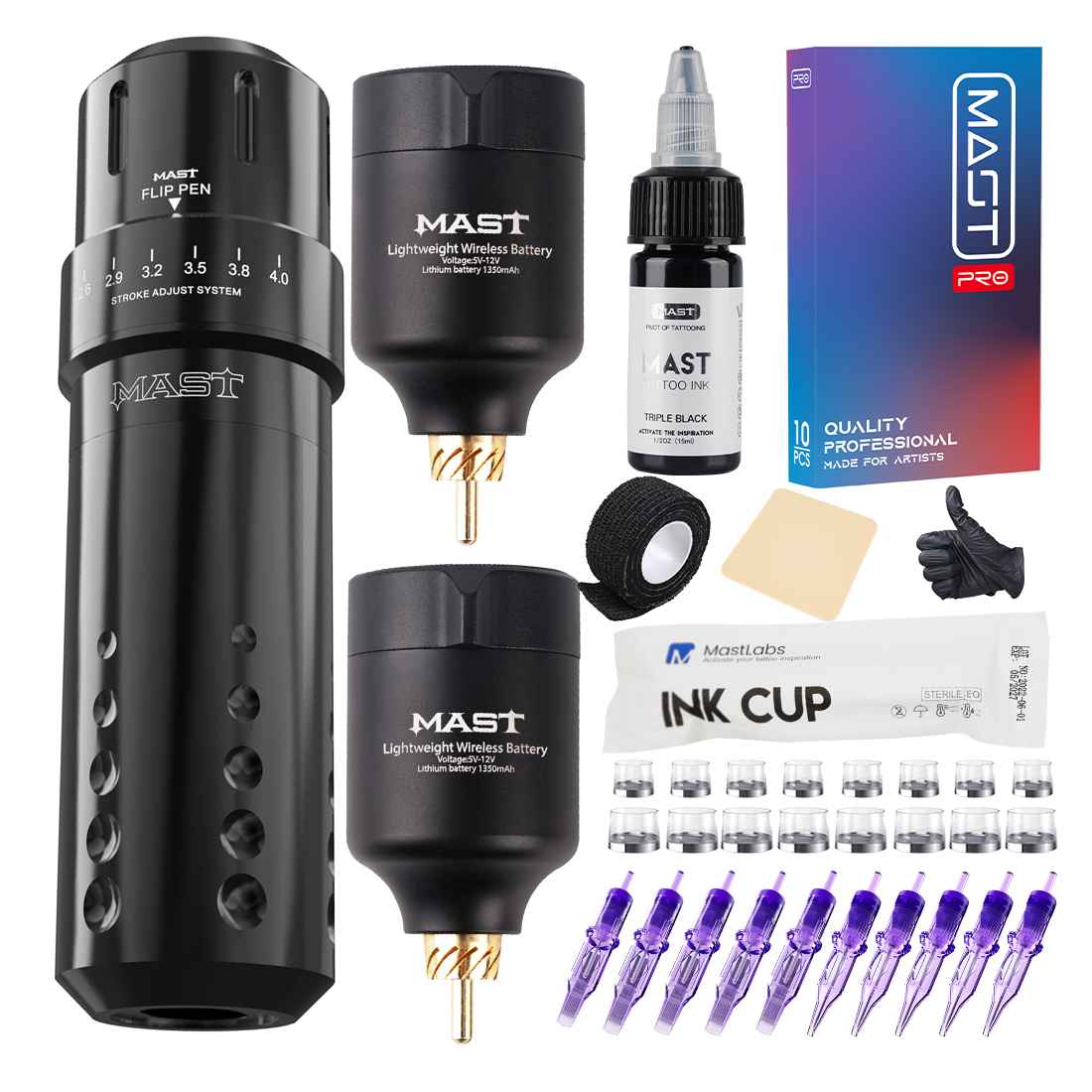Have you ever wondered why those medical questionnaires ask if you have tattoos before surgery? Like h*ll, “Why do they ask if you have tattoos before surgery?”
It’s a seemingly unrelated query that might make you pause and ponder. What does body art have to do with the procedure about to unfold?
Picture this: You’re lying on the operating table, surrounded by masked faces and gleaming instruments.
The anesthesia is about to kick in, but before you drift into unconsciousness, the surgeon asks, “Do you have any tattoos?”
It’s a moment of unexpected tension, leaving you curious and perhaps a tad anxious. Why does it matter?
Fear not as we embark on a journey to demystify this connection between ink and the operating room.
There’s a method to the madness, a reason surgeons want to know about that butterfly on your ankle or the tribal sleeve on your arm.
While seemly random, checking for tattoos serves important medical purposes around infection risks, anesthesia needs, surgical planning and identifying blood donors. Understanding why tattoos matter to your surgical care helps improve outcomes.
Join us as we unravel the secrets behind this seemingly peculiar pre-surgery question.
Overview of Tattoo Health Considerations
Tattoos influence medical treatment in several ways:
- Their permanence makes infections more problematic if they harbor germs.
- Tattoo dyes and metals could potentially cause allergic reactions or other issues.
- Tattoos impact choices and dosing around anesthesia and pain management.
- Medical imaging scans require adjusting approaches for accurate tattooed body mapping.
- Surgeons must strategize around existing tattoos during operations and mark incisions.
- Inking can skew the results of some diagnostic lab tests.
- Certain cultural tattoos help identify at-risk patients needing specialized care.
Doctors ask about tattoos to protect patient health and safety based on these tattoo-related risks and variables. Honest disclosure ensures the best care.
Surgical Site Infections
A major tattoo-related concern is increased infection susceptibility:
Common Causes: Normal skin bacteria and contaminated tattoo inks and needles can introduce microbes during tattooing.
Infection Signs: Redness, swelling, warmth, tenderness, pus, fever or skin changes around the tattoo.
At-Risk Tattoos: Home tattoos, scratcher work, cover-ups, larger pieces, and tattoos on feet/legs and torso carry higher risks.
Why Pre-Surgery Matters: Any lingering germs in new, unhealed tattoos may spread to sterile surgical sites and implantable devices leading to dangerous infections.
Assessing Severity: Doctors gauge infection severity and contagiousness based on symptoms, high-risk tattoos, immune health, lab tests, and whether spreading has begun.
Identifying concerning tattoos prompts added antibiotic treatment to prevent infectious complications.
Also Read: Why Don’t Tattoo Artists Use Numbing Creams [9 Strong Reasons + Safer Alternatives]
Allergic Reactions and Medical Dyes
Tattoo risks also stem from allergies and unknown ingredients:
Common Culprits: Red ink, metals like mercury or nickel, and preservatives added to tattoo pigments. Reactions peak 2 weeks after tattooing.
Reaction Symptoms: Rashes, itching, raised welts, blisters, scaly plaque and excessive crusting around the tattoo.
Treatment Options: Topical steroids, oral antihistamines, antiseptics, chemical peels, laser removal and surgical excision of reactive areas.
Testing Concerns: Allergy tests often cannot identify specific ingredients due to tattoo ink lacking FDA regulation. Doctors test reactions empirically.
Pre-Surgery Care: Allergies may indicate sensitivity to medical tapes, sterilizing solutions, latex gloves, antibiotics and anesthesia during surgery. Alternatives are prepared.
Impacts on Anesthesia and Pain Management
Anesthesiologists also need to know about tattoos so they can help with certain things like;
Dosage Determinations: More inked skin surface area may warrant increased anesthesia doses which are metabolized differently in tattooed tissue.
Placement Challenges: Tattoos can obstruct injections of local anesthetics pre-surgery if covering common sites like the spine or near nerves.
Blood Circulation Effects: Heavily tattooed extremities can suffer circulation changes requiring adjustments to IVs or tourniquets.
Post-Op Pain Control: Tattooed skin may be more sensitive requiring stronger post-surgical pain medication.
Drug Interactions: Reactive tattoo inks may indicate avoidance of certain anesthetic agents is needed to prevent complications.
Modifying anesthesia for tattooed patients prevents issues like inadequate numbness or dangerous drug interactions.
Also Read: Why Do Tattoo Artists Wear Black Gloves: [9 Secrets of Tattoo Perfection]
Impacts on Medical Imaging
Tattoos also interfere with getting clear scans. For instance in;
X-Ray Imaging: Dense tattoo pigments and metals can block x-ray penetration needed for bone imaging. Tattoo locations are logged.
MRI Distortions: Magnetic tattoo inks containing iron oxides severely distort MRI images, obscuring pathology and anatomy. Extensive scans may be needed.
PET/CT Scan Concerns: Some pigments absorb radiotracers like fluorodeoxyglucose creating hotspots that mimic cancer or infection on scans if unrecognized.
Ultrasound Difficulties: Dark tattoos block visualization of underlying tissue and vasculature. Heavily tattooed organs like livers pose problems.
Solutions and Workarounds: Using alternative modalities, avoiding tattooed areas for device placement, technician experience, targeted imaging protocols and patient cooperation facilitate accurate results.
Understanding tattoo locations prompts adaptations for successful scans and procedures requiring imaging.
Surgical Site Planning and Incision Strategies
Surgeons adjust approaches accounting for tattoos:
Limiting Existing Tattoo Damage: They plan surgical cut locations to minimize intersecting elaborate tattoos that are costly and meaningful to patients.
Camouflaging Scars:
Incisions may intentionally incorporate tattoo edges to disguise scarring within the existing art.
Working Around Fading and Treatment:
Cuts through recent tattoos can create permanent light scars as the underlying ink fades unevenly. Surgeons delay non-essential surgery following new tattoos.
Infection Risk Minimization:
Avoiding surgical incisions directly through tattoos when feasible reduces infection likelihood.
Mapping Ink Locations: Logging tattoo sites prevents misidentification as real anatomical structures. Trauma patients get full body diagrams.
Biopsies Through Tattoos:
Removing skin lesions or performing biopsies through tattoos is avoided unless necessary to prevent permanent damage and distortion.
Surgeons thoughtfully weigh preserving existing tattoos against necessary incisions during operations.
Also Read: Can a Veterinarian Have Tattoos? Here’s the Honest Truth
Impacts on Diagnostic Blood Tests
Pre-testing knowledge of tattoos prevents some lab testing errors:
Elevated White Blood Cell Counts: Certain tattoo pigments illicit lifelong immune system reactions. A high white blood cell count indicating infection could wrongly result absent this understanding.
Altered Liver Function Tests: Extensive tattoos on the arms, back and chest significantly impact tested levels of liver enzymes due to absorption. Unexplained enzyme counts prompt tattoo questions.
Interference with Nucleic Acid Testing:
Some tattoo inks like black contain amplifiable organic material that can be misread as human genetic sequences on sensitive PCR-based lab tests, skewing results.
False Positives for Drug Testing: Opiate drugs, amphetamines, benzodiazepines and analgesics added to certain tattoo inks temporarily bio-accumulate in the body and urine leading to false positive tests.
Therapy Associated Distortions: Tattoos mark important lymph nodes for radiation therapy but can warp tattoo images with repeated radiation exposure.
Realizing tattoos influence diagnostic testing prevents delays in appropriate treatment from misleading lab work.
Identifying At-Risk Patients
Finally, certain tattoos indicate higher medical risks requiring specialized approaches:
Traumatic Pasts: Gang, hate group and prison tattoos may signify past experiences impacting mental health, addiction and compliance. Counselors help manage vulnerabilities.
Ethnicity and Beliefs: Tattoos linked to faiths and cultures include religious objection to autopsies or blood transfusions which doctors accommodate through prior consent and directed donations.
Unknown Ink Components: Trying to identify mystery tattoo pigments, metals and brands helps pinpoint risks, especially when a tattoo itself is causing illness symptoms.
Social History Insights:
Discussing risky contextual tattoo decisions provides insight into a patient’s past judgment and impulsivity guiding counseling referrals for needed behavior changes.
Health Literacy Barriers: Questionable DIY tattoo choices can flag comprehension issues safely managing post-operative directions. Extra patient education helps in these cases.
Noting atypical tattoos gives doctors valuable psychological and social context to customize informed surgical consent and holistic treatment.
Patient Selection of Tattoo-Friendly Surgeons
Those with prized tattoos should seek out tattoo-sensitive surgeons through:
Referrals from Tattoo Artists: Well-networked artists recommend and direct favored clients to reliable doctors with proven tattoo preservation track records.
Physician Tattoo Artistry: Surgeons who tattoo themselves intrinsically understand the importance of cautious incisions around existing artwork.
Plastic Surgeons: Reconstructive doctors excel at artfully hiding scars within tattoo edges and other preservation techniques.
Surgeons Experienced With Cultures Valuing Tattoos: Pacific Islander, Maori, Yakuza-related, and other ethnic tattoo care specialists prevent treasured work loss.
Doctors Open to Patient Priorities: Find professionals welcoming open collaborative discussions around tattoo-conscious surgery strategies.
Choosing providers mindful of tattoo significance produces the best outcomes.
Conclusion
Being asked tattoo questions before surgery may seem odd or intrusive initially. Like why do they ask if you have tattoos before surgery?
However, disclosing your body art provides doctors invaluable health insights that profoundly impact your surgical care in terms of safety, technical considerations, anesthesia needs and diagnostic guidance.
The more forthcoming patients are about existing tattoos, the better surgeons can develop customized approaches for the best outcomes and recovery.
Understanding the tattoo-related reasoning behind pre-operative health questions leads to smoother surgery experiences.
FAQs
Are people with tattoos at higher risk for surgical complications overall?
No, having tattoos alone does not make someone high-risk. But certain types of tattoos or reactions point to other medical issues needing surgical precautions. Most implications are easily managed.
Will I have to pay more for surgery if I have tattoos?
No, tattoo status does not affect surgical procedure costs. But more complex imaging, anesthesia care or infected tattoo management may increase related pre-testing and follow-up bills slightly in some cases.
How far in advance should I tell my doctor about tattoos before surgery?
Ideally, disclose tattoos at your first consultation several weeks pre-surgery to allow adjustments. But even last minute disclosure provides value and causes no delays.
Will doctors judge me or provide worse care because I have tattoos?
Ethical standards prohibit tattoo discrimination. Quality care remains unchanged. Visible tattoos are so common nowadays, doctors barely notice them beyond medically relevant considerations.
Do I have to disclose old amateur tattoos?
Yes, even old, DIY or jailhouse tattoos require disclosure to assess infection risks. But you will not face any legal issues revealing past illegal tattoo activities to healthcare providers.
Can I request tattoo-friendly anesthesia?
Yes, you can request skin-tested agents and avoid potential reactive ingredients. But standard modern anesthetics pose very low tattoo allergy risks for most people. Speak up about any past reactions.
Will surgeons avoid cutting through my tattoos if possible?
They will try to plan incisions to minimize damage to existing artwork. But necessary excisions for cancer, trauma, implants, etc. take priority over tattoo preservation.
How long should I wait between getting a new tattoo and undergoing surgery?
Ideally postpone elective surgery for one month after tattooing to allow for healing. But for emergency operations, disclose fresh tattoos so extra infection precautions are taken.
Can tattoo numbing creams interfere with medical anesthesia?
No, tattoo numbing creams wear off quickly and have no long term effect. But do disclose their use before surgery as they can cause rare allergic reactions.
Will tattoo ink leach into my body during surgery?
Minimally. Small migrated ink particles are cleared naturally. Quality body inks have proven safe over decades of use. Only avoid black henna which contains harmful additives.






